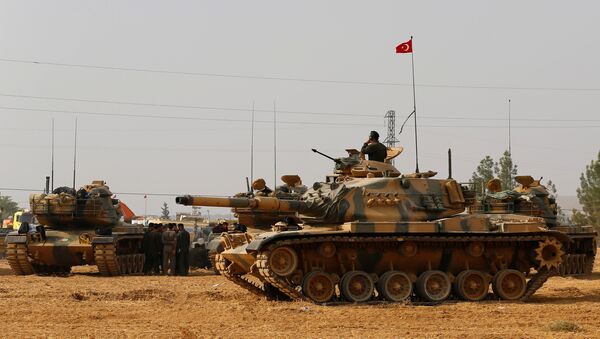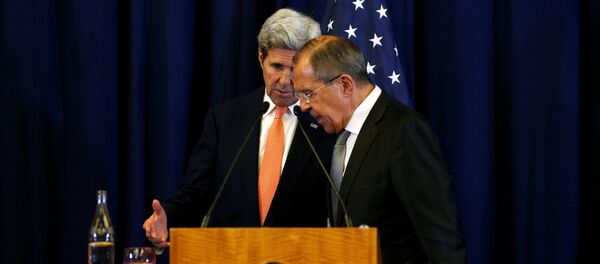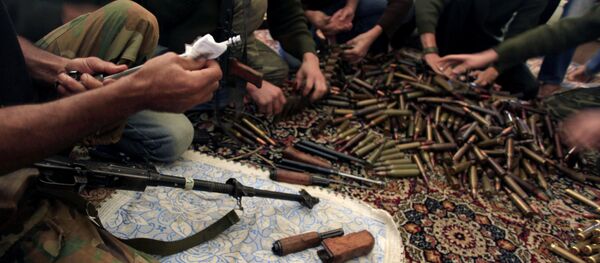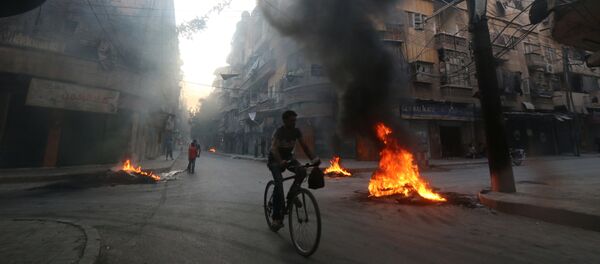Turkey may find itself backed into a corner in Syria, if it continues to move southwards from Jarablus, experts suggest.
"The Turkish government submitted a motion to the parliament for extending the mandate authorizing the Turkish Armed Forces to take military action in Syria. The proposal seeks [to prolong authorization by] one more year for the government to carry out cross-border military operations against 'terrorist threats' and allows the deployment of foreign troops on Turkish territory too," political analyst and expert on Pakistani foreign affairs Salman Rafi Sheikh writes in his analysis for New Eastern Outlook.
The analyst adds that the West does not seem enthusiastic about implementing the much discussed "safe zone" in Syria.
Indeed, on Tuesday German Chancellor Angela Merkel expressed skepticism regarding the creation of the no-fly zone.
"Personally I am skeptical about the immediate creation of a no-fly zone [in Syria]. Obviously, the Syrian authorities and Russia must take a step toward strengthening and renewing the ceasefire and humanitarian support. But what we are witnessing is really very brutal and targeting the civil population. Now only negotiations may help in moving forward. But in recent days we have witnessed a very deep regression," Merkel stressed.
"Given the lukewarm attitude of Western powers, including the US, towards the concept of a 'safe zone', this is least likely to happen," Sheikh suggests.
On the other hand, tensions continue to simmer between Ankara and Washington over the US' alliance with the Kurdish People's Protection Units (YPG) and the Democratic Union Party (PYD), which are regarded by Turkey as "terrorist" organizations linked to the Kurdistan Workers Party (PKK).
"Turkey's 'conditional' approach to Syria, which is now revealing itself over the question of the Syrian Kurds, remains the main obstacle preventing it from working much more closely and effectively with its NATO allies under a viable strategy," Semih Idiz of Al-Monitor's Turkey Pulse underscores.
Idiz emphases that Washington has made it clear to Turkey that it still considers the YPG to be its ally in Syria. Moreover, "much to Ankara's annoyance," the Pentagon continues to arm the YPG while preparing to liberate Raqqa from Daesh (ISIS/ISIL).
Citing Abdulkadir Selvi, a columnist for Hurriyet Daily News, Idiz explains that Ankara has offered Washington to replace the YPG fighters with the Turkish-backed Free Syrian Army to retake Raqqa.
"The FSA, however, has not proved itself to be a viable replacement for the YPG," Idiz remarks.
Idiz quotes retired Turkish Ambassador Osman Faruk Logoglu, who believes that Turkey runs a considerable risk by pushing ahead with the plan to move deeper into Syrian territory.
"It is uncertain, however, what it aims to achieve when it says it will move farther south by 45 kilometers [28 miles]. Is its intention to prevent the PYD or to establish a safe zone? And if it moves south, how does it hope to hold on to territory there, even with 100 tanks, given that this is an asymmetric war," Logoglu asked, as cited by the journalist.
The Turkish diplomat also predicts that Turkey will meet opposition from Washington, Moscow and Tehran if it continues to move southwards from Jarablus.
Sheikh echoes Logoglu. "What critical objective(s) is Erdogan seeking to materialize out of this expanded military presence in Syria?" he asks.
The Pakistani analyst assumes that by bringing al-Bab, Raqqa and Aleppo under its control, Turkey is apparently planning to get rid of the Kurdish threat and at the same time "to become a major negotiator/stakeholder, alongside and on par with US and Russia, in any final settlement of the [Syrian] conflict."






